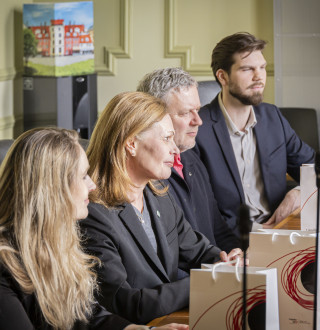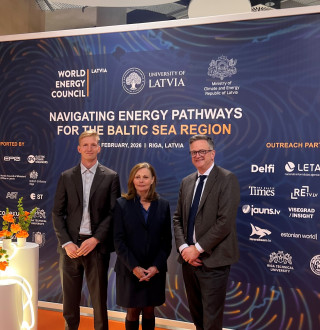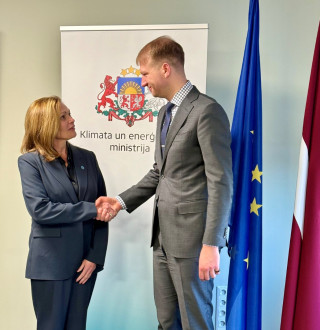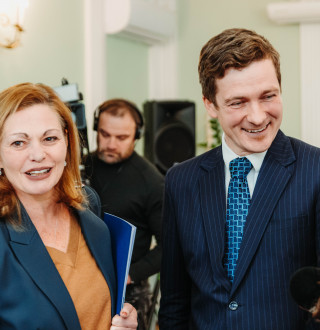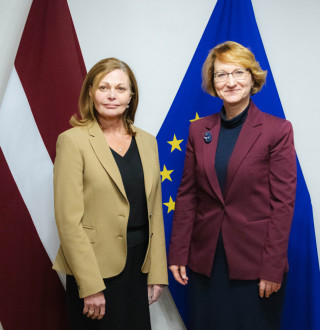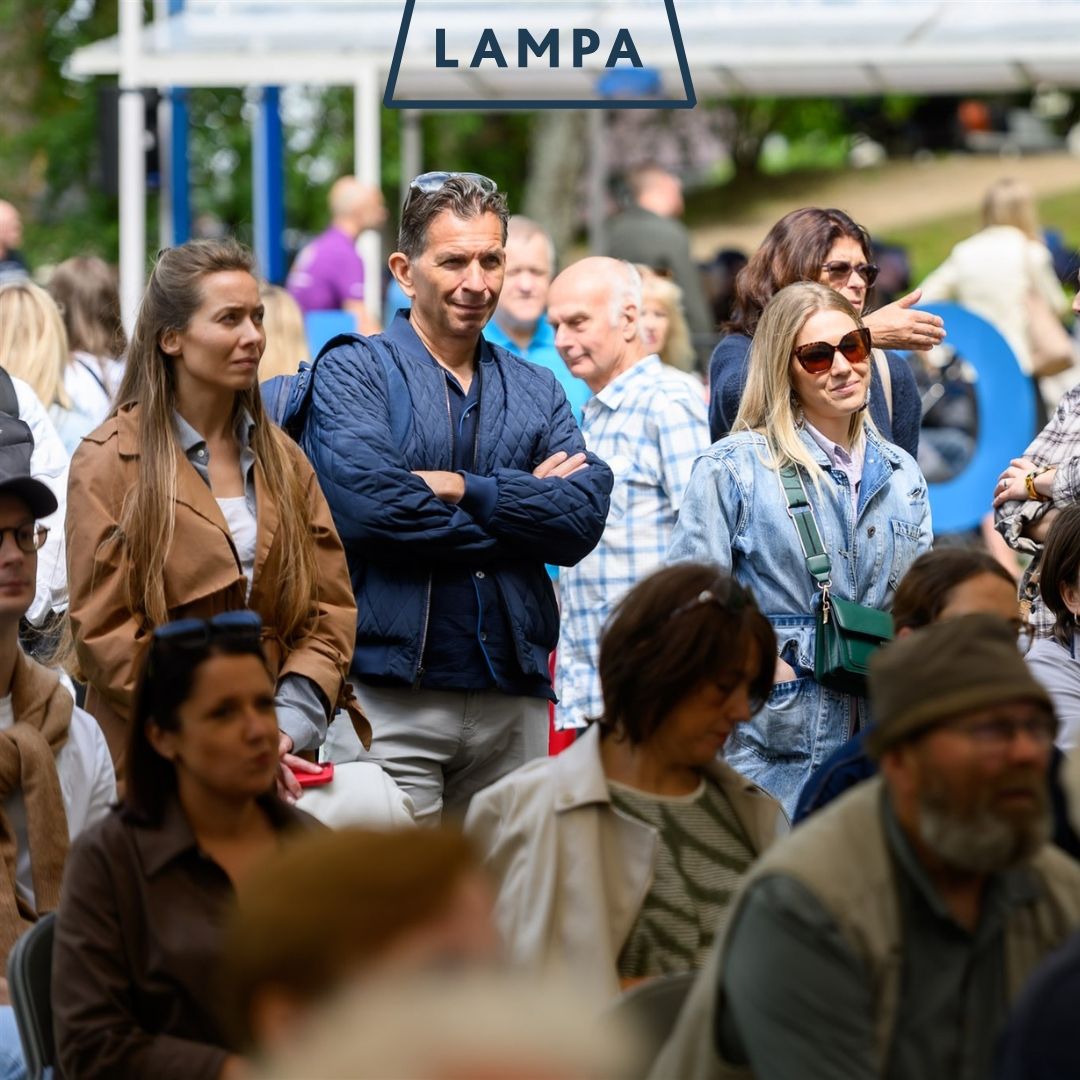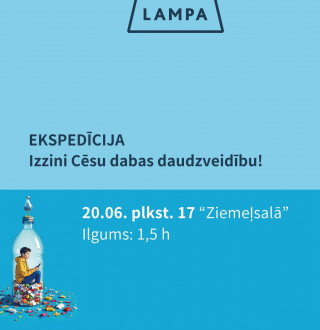On 20–21 June, the LAMPA Conversation Festival took place in Cēsis for the eleventh time. This year, in addition to the high-quality expert discussions on issues relevant to Latvia and to the Nordic countries, the Nordic stage ZIEMEĻSALA offered three new activities – a guided walk around the town, degustation of local products and a practical dialogue workshop led by LAMPA founder Ieva Morica together with the Finnish philosopher Kai Alhanen.
The Nordic stage opened with the discussion “Nordic open archives and digital futures” moderated by art project coordinator Elīna Lazareva and featuring artists from Latvia, Denmark and Sweden. The talk focused on the potential of artificial intelligence, augmented reality and Web3 tools in reinterpreting historical archives and making those more attractive and accessible. This was a follow-up event after the exhibition “Digital Twins: Echoes from the Archives” by Danish artists Diana Velasco and Ida Kvetny. The exhibition, supported by the Nordic Council of Ministers’ Office in Latvia, was showcased in Riga from 29 May to 1 June as part of Riga Art Week (RAW).
Programme of the Nordic stage featured 11 discussions on topics such as regional security, recycling of textile, inclusive urban spaces, the role of Belarus in Europe, the potential of renewable energy, the impact of platform algorithms, autonomy for people with disabilities and the value of small languages. In total, 17 Nordic experts were invited to speak on the Nordic stage. Kristina Háfoss, Secretary General of the Nordic Council, participated in the panel discussion “Safer together – the new reality for the Nordic-Baltic region”, moderated by Kārlis Bukovskis, Director of the Latvian Institute of International Affairs.
When asked about regional security, K. Háfoss listed the benefits for the Nordic and Baltic countries due to being drawn closer in the face of the increasing global turmoil. At the same time, she highlighted some vulnerabilities in regional defence that call for swift action:
“The raising support to diverse kinds of extremism and populism among youngsters requires proper attention. With this threat being a trans-border matter, no country can stand against it alone. Joint effort is paramount. We have seen the movement on different social media platforms, yet the proper response has been falling short until now. I’m glad that the Nordic and Baltic governments have come together and established the Nordic-Baltic AI Centre. Gathering top experts in the field gives an enormous advantage in getting ahead of this crucial threat to our democratic societies.”
On the first day of the festival, visitors of the Nordic stage were also invited to join a biodiversity-themed walk through Cēsis, led by Dr. Kristīne Āboliņa, a geography expert. Meanwhile, during the discussion “Youth – the future shapers of agriculture?”, organised by “Sustainable Gastro”, attendees were treated to freshly baked buckwheat waffles and hemp delicacies, provided by the local farms “Liepkalns” and “Obelisk Farm.” On both days of the festival, the area of the Nordic stage hosted an exhibition “Fashion Forever” by the Swedish Institute, addressing the issue of sustainability in the fashion industry.
The Nordic stage was managed by the Nordic Council of Ministers’ Office in Latvia in cooperation with all Nordic embassies represented in Latvia – the Embassies of Denmark, Norway, Finland and Sweden – as well as the Danish Cultural Institute. Live interpretation into Latvian was provided for all discussions held in English. Recordings of all sessions are available on Facebook (with interpretation) and on YouTube (in the original language).
